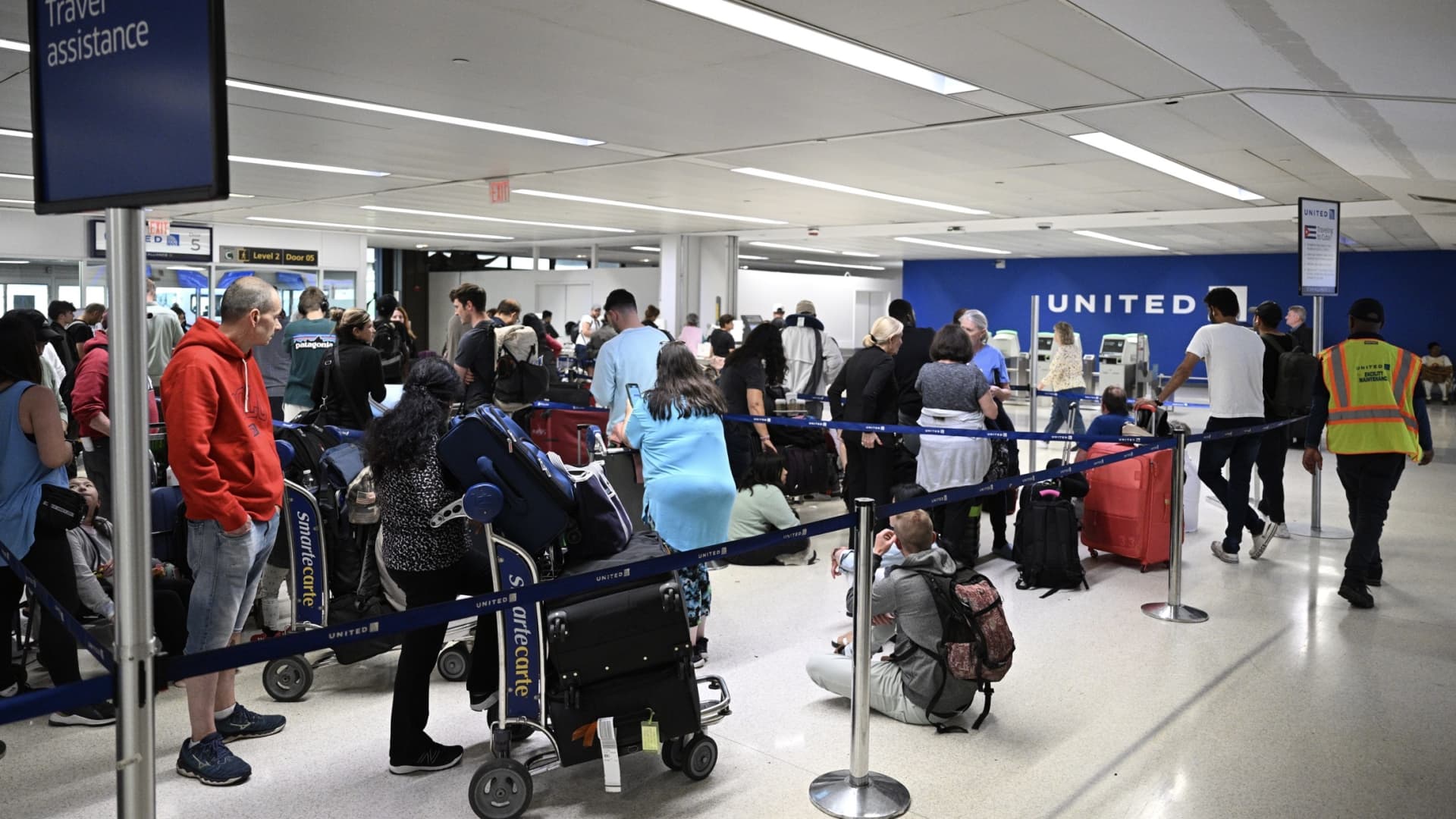Flight disruptions mounted Tuesday as severe storms and staffing issues kicked off a rocky start to summer.
Roughly 3,000 U.S. flights were delayed as of midday Tuesday and another 1,100 were canceled as thunderstorms that derailed thousands of trips over the weekend lingered. That’s on top of more than 8,800 U.S. delays and 2,246 cancellations Monday.
The disruptions come ahead of the busy Fourth of July holiday travel period, when millions are expected to fly. The Transportation Security Administration said it could screen more travelers than in 2019, before the pandemic, raising competition for spare seats.
The Biden administration has pressured airlines to improve their operations after widespread flight disruptions last spring and summer, which prompted carriers to trim their overambitious schedules. But the industry struggled to recover this past weekend from a series of thunderstorms that didn’t let up for days.
Thunderstorms are difficult for airlines because they can form with less warning than other major weather obstacles like winter storms or hurricanes. Rolling delays could force crews to reach federally mandated workday limits and further worsen disruptions.
Some airline executives have also blamed some of the disruptions on shortages of air traffic controllers.
United Airlines CEO Scott Kirby told staff on Monday that “the FAA frankly failed us this weekend.” He said that during Saturday’s storms the FAA reduced arrival rates by 40% and departures by 75% at Newark Liberty International Airport in New Jersey, one of the airline’s biggest hubs.
“It led to massive delays, cancellations, diversions, as well as crews and aircraft out of position,” Kirby wrote in a staff note, which was seen by CNBC. “And that put everyone behind the eight ball when weather actually did hit on Sunday and was further compounded by FAA staffing shortages Sunday evening.”
An FAA spokesman said in a statement, “We will always collaborate with anyone seriously willing to join us to solve a problem.”
The staffing challenges aren’t new. The Covid-19 pandemic derailed hiring and training of new air traffic controllers, and the agency is now trying to catch up.
The Department of Transportation’s Office of Inspector General said in a report last week that air traffic control staffing shortfalls put air traffic operations at risk. In March, the FAA and some airlines agreed to reduce flights to help ease congestion at busy New York airports because of the staffing issues.
But the problems persist at a time when airlines are readying crews and schedules for a busy summer season, fueled by sustained travel demand.
And the disruptions frustrated flight crews who were left waiting on hold for reassignments.
The Association of Flight Attendants-CWA, which represents flight attendants at United and others said in a memo to members Monday that hold times for crew scheduling were longer than three hours.
“There is an absolute recognition by Union leadership and Inflight management that something must be done in order to permanently address these adverse situations resulting from irregular operations,” the union said.
In response to the union’s memo, United said it has “deployed all available resources to catch up on call volume, including increasing staffing in crew scheduling and mandatory overtime on the scheduling team.”
New York-based JetBlue Airways also faced high levels of flight delays over the past few days and acknowledged it can improve how it handles disruptions in a note to crew members Monday, which was reviewed by CNBC.
Don Uselmann, vice president of inflight experience at JetBlue, said the airline could have updated crew reporting times more efficiently so staff wouldn’t be waiting for flights and reducing wait times for hotel assignments.
“Summer peak is officially underway, and extreme weather events, ATC staffing constraints, and the resulting delays will put all airlines to the test,” he said in his note. “This weekend’s [irregular operation] won’t be our last, but the combination of events put acute pressure on the operation and made it more challenging than most.”

